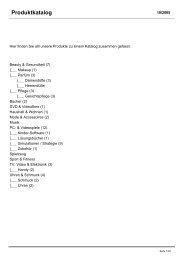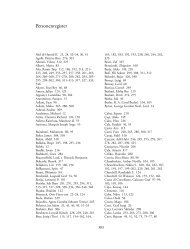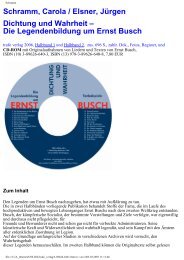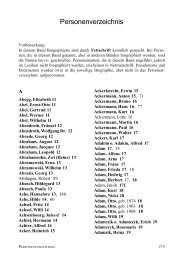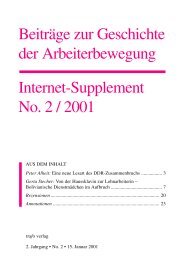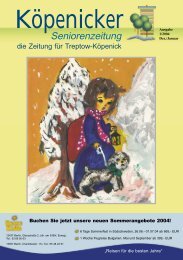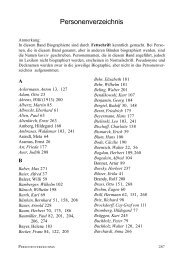Beiträge zur Geschichte der Arbeiterbewegung Internet-Supplement ...
Beiträge zur Geschichte der Arbeiterbewegung Internet-Supplement ...
Beiträge zur Geschichte der Arbeiterbewegung Internet-Supplement ...
Create successful ePaper yourself
Turn your PDF publications into a flip-book with our unique Google optimized e-Paper software.
BzG-<strong>Supplement</strong> No. 1/2000 3<br />
The Trades Union Congress, the British<br />
Authorities in Occupied Germany and<br />
Trade Union Demands, 1947–1952.<br />
RICHARD CROUCHER, CENTRE FOR STRATEGIC TRADE<br />
UNION MANAGEMENT, CRANFIELD UNIVERSITY<br />
The DGB came into existence in Munich in October 1947. Yet by then, the local<br />
foundations of a revived German trade unionism were laid in the Western occupation<br />
zones. Indeed, the British encouraged unionism at the local level before mergers created<br />
larger unions. The British zone was particularly important in the development in<br />
German trade unionism. By 1948, 2.8 million workers were unionised in the British<br />
zone, compared to 1.6 million in the American. Trade union density was also highest<br />
there. 1 It was there, too, that the DGB (britische Besatzungszone) and Hans Boeckler<br />
were based. German trade unionists were inclined to look to the British and their<br />
recently-elected Labour government to provide a counterweight to American and<br />
French influence. The nature of trade unionism in the zone was therefore of general<br />
significance for German trade unionism more widely.<br />
This article focusses on a discussion between Hans Gottfurcht, a leading German<br />
exile and trade unionist, appointed as liaison officer between the British Trade Union<br />
Congress (TUC) and the emergent trade unions in the British zone, and the senior<br />
British occupation official responsible for industrial relations policy issues, Reginald<br />
Luce. The exchange took place in June and July of 1947.The British occupying<br />
administration wished to exercise strict control over the development of German trade<br />
unionism. In the British view, unions were important elements in the democratisation<br />
of German society, which they saw as over inclined towards centralisation and<br />
obedience. They were well-equipped to exercise control, since they employed a<br />
relatively large number of people in Germany and were therefore well informed. The<br />
key part of the occupation government responsible for trade union issues was Manpower<br />
Division. Manpower Divisions’ partner and advisor was the TUC, a body which<br />
felt that it stood at the centre of the oldest trade union movement in the world.During<br />
the Second World War, the TUC was closely consulted and involved by government:<br />
many trade unionists took up official positions. In the immediate post-war years, close<br />
relationships with government and the Foreign Office were maintained while contacts<br />
developed with German trade unions.Because multilateral international trade union<br />
co operation and organisation were bedevilled by developing Cold War conflict,



